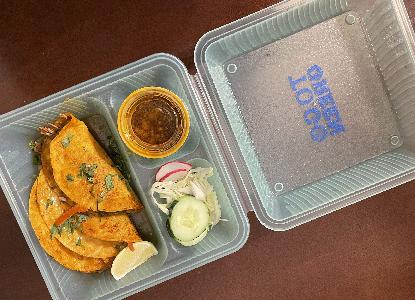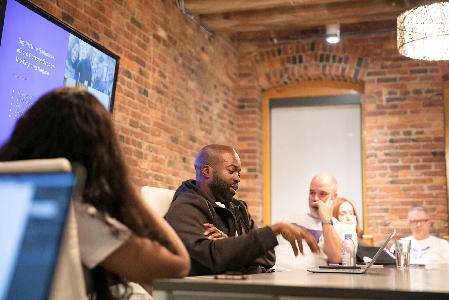With the help of the Department of Energy (DOE), two DMV schools are building the next phase of electric vehicle (EV) battery tech.
The University of Maryland (UMD), College Park and Virginia Tech were both selected for the DOE’s $42 million funding program to boost the domestic supply of the latest EV battery tech. The Electric Vehicles for American Low-Carbon Living program selected 12 projects from universities and tech companies to find new solutions for faster charging (and longer-lasting charges), efficiency in extreme temperatures and better range retention. The program is managed by the DOE’s Advanced Research Projects Agency-Energy, which selected the 12 recipients.
“It’s not just fundamental research, it’s doing research to achieve a goal, but also to have a commercialization path so that it really does have a greater impact by getting it out to the customer,” Eric Wachsman, director of the Maryland Energy Innovation Institute at UMD, told Technical.ly.
Through the program, UMD will receive $4.86 million for its project to increase the charge and discharge capability, energy density and operating temperature of lithium batteries in a solid state. Using mixed ionic electronic conducting ceramics and a variety of processing techniques, the team will create thinner bilayers and trilayers with higher porosity, creating lower mass. This technology will also include cobalt and nickel-free, high-voltage cathodes and nonflammable electrolytes.
Virginia Tech will build batteries without cobalt and nickel in its cathodes thanks to its $2.945 million award. Without the cobalt and nickel, Virginia Tech said it can reduce the cost of cathodes by 50% and use a combination of coal, carbon and silicon anodes to reduce coal waste and lower costs. The university’s batteries will be fast-charging with all-weather electrolytes. Thanks to the material changes, Virginia Tech also says that the developments will mitigate supply chain risks.
Virginia Tech will be assisted by Waschman’s colleague, Maryland Energy Innovation Institute Associate Director Paul Albertus. The associate professor of chemical and biomolecular engineering is also co-investigator for another recipient project from the DOE’s Sandia National Laboratories.
These updates in technology, Wachsman said, can reduce battery size and weight. Smaller batteries and a faster charge will reduce cost and increase access to those in cities and multifamily units. Plus, a smaller and lighter battery means more efficient vehicles.
One of the main goals of the program, though, is boosting domestic battery builds to be competitive on the market.
“One of the issues with the American battery industry is we just don’t currently have the scale of manufacturing that they do in China, so they can outperform us in terms of price,” Wachsman said. “So it’s going to take breakthroughs in technology like this that’ll bring the cost of American-made batteries down to the point where they’re competitive with the alternatives.”
Building better electric vehicle technology, the DOE said, will be crucial in decarbonizing the economy and reducing the impact of heavy-emitter industries. The agency added that this program will directly support President Joe Biden’s intentions to grow the EV industry so that they constitute half of domestic vehicle sales by 2030.
“Electric vehicle sales in America have tripled since the start of this administration and by addressing battery efficiency, resiliency and affordability, the projects announced today will make EVs attractive to even more drivers,” said Secretary of Energy Jennifer Granholm in a statement. “This is a win-win for our efforts to fight climate change and power America’s clean transportation future with technologies produced by researchers and scientists right here at home.”
Before you go...
Please consider supporting Technical.ly to keep our independent journalism strong. Unlike most business-focused media outlets, we don’t have a paywall. Instead, we count on your personal and organizational support.
3 ways to support our work:- Contribute to the Journalism Fund. Charitable giving ensures our information remains free and accessible for residents to discover workforce programs and entrepreneurship pathways. This includes philanthropic grants and individual tax-deductible donations from readers like you.
- Use our Preferred Partners. Our directory of vetted providers offers high-quality recommendations for services our readers need, and each referral supports our journalism.
- Use our services. If you need entrepreneurs and tech leaders to buy your services, are seeking technologists to hire or want more professionals to know about your ecosystem, Technical.ly has the biggest and most engaged audience in the mid-Atlantic. We help companies tell their stories and answer big questions to meet and serve our community.
Join our growing Slack community
Join 5,000 tech professionals and entrepreneurs in our community Slack today!






